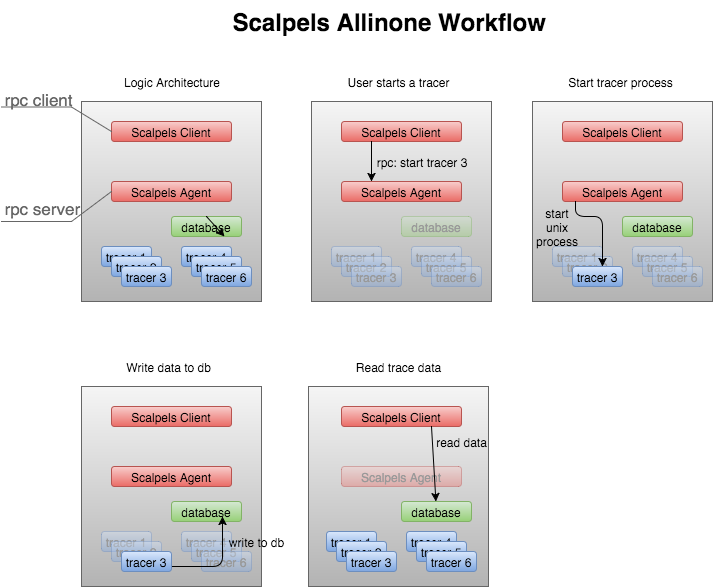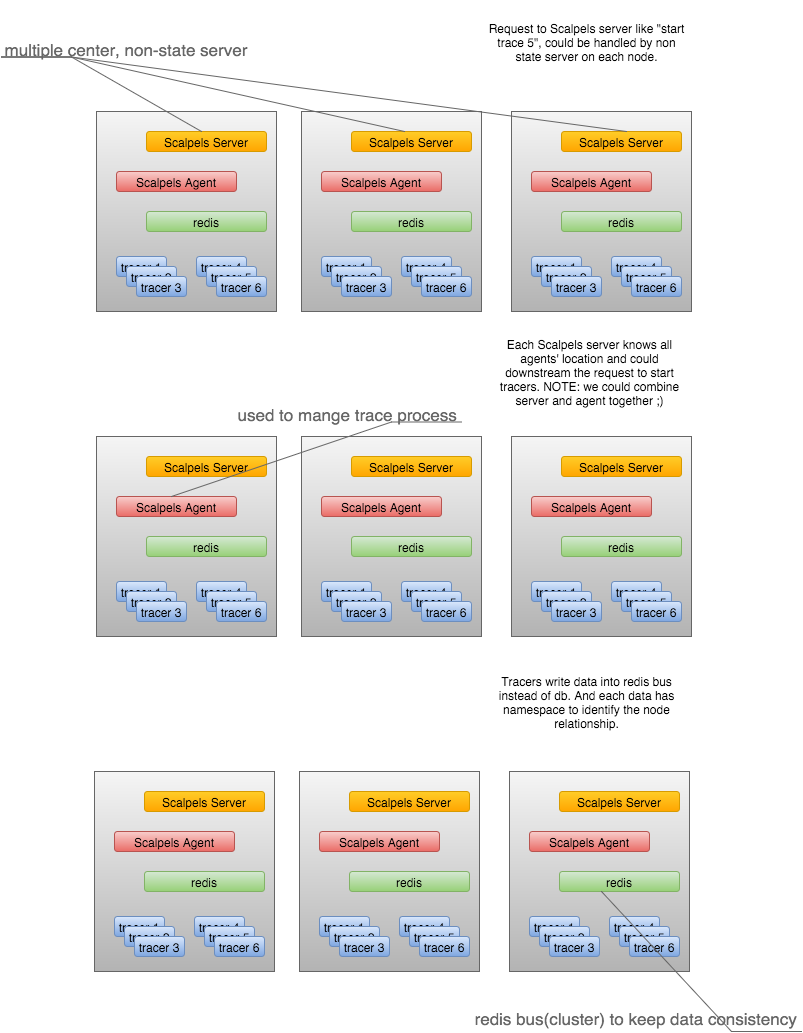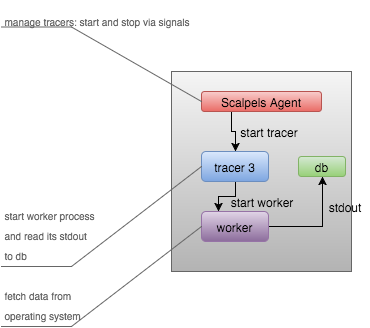Digging and Tracing system for OpenStack
use functions to avoid repeatly calling "cat" commad and make code cleaner Change-Id: If8a2643eb99f9acfcd94d9f042216bbaec7718cc |
||
|---|---|---|
| devstack | ||
| doc | ||
| scalpels | ||
| scripts | ||
| tests | ||
| tools | ||
| .gitignore | ||
| .gitreview | ||
| .testr.conf | ||
| LICENSE | ||
| README.rst | ||
| requirements.txt | ||
| setup.cfg | ||
| setup.py | ||
| test-requirements.txt | ||
| tox.ini | ||
Scalpels
Scalpels is distributed tracing or debuging system for OpenStack.
Background
OpenStack is made of multiple Python-based projects. Each project has similiar but different architecture. Scalpels gathers useful scripts or 3rd tools to help operator find what happen in your cloud.
Contribute
This project is prototype now and under development. If you have interests in this work, please contact @kun_huang, at #openstack-chinese channel.
Mission
Scalpels is kind of "debugfs" for OpenStack. It gathers data from number of tracers like proc or systemtap which could be used to quantize preformance under workloads.
Single Node Architecture
This type of deployment is used as POC in OpenStack community CI.
Multiple Node Architecture
This is under Designing:
Agent-Tracer-Worker
The relationship is:
Ideas
Each project will have scripts working:
- on python calls
- on sql queries
- on filesystem I/O
- on RPC calls if need
- on necessary system calls
- on common system statistics


